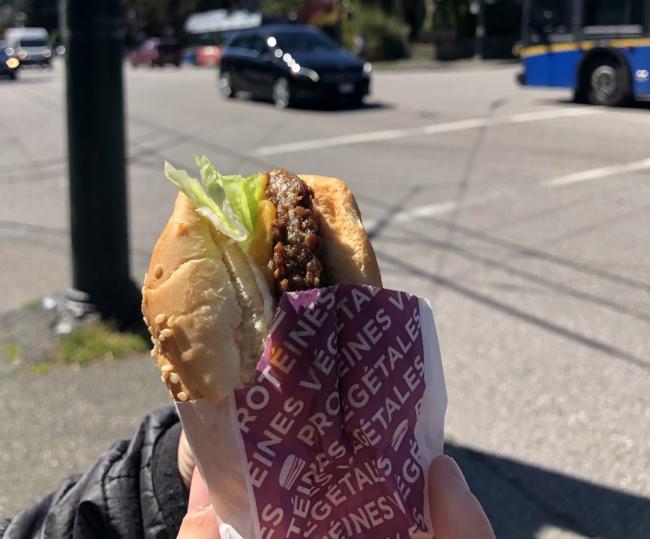International food giants are reinventing how they grow — and market — food in a bid to convince eco-conscious consumers their products are environmentally friendly.
Recent months have seen huge companies like McCain Foods, Cargill, and General Mills announce the industrial farms that supply them with ingredients used to make everything from French fries to beef patties will be required to use regenerative farming techniques. Regenerative farming is a loose collection of farming practices that aim to improve soil health, sequester carbon in farm fields, and promote biodiversity.
Food accounts for between 21 and 37 per cent of the world's greenhouse gas emissions, according to a 2019 IPCC report. Industrial farming — long promoted by the world's food giants — is also driving down biodiversity and pollinator populations and is linked to poor soil health and water quality worldwide. Regenerative farming, even at an industrial scale, promises to reverse those environmental ills.
Food companies are betting the move toward regenerative farming will resonate with climate-conscious consumers, particularly millennial and Gen Z consumers who studies show are concerned about their diets' environmental impact.
There is one catch: No one agrees on what, exactly, regenerative farming means.
“Regenerative agriculture is more of a mindset,” said Cedric MacLeod, an independent agronomist and farmer in New Brunswick. “It's about maintaining soil health ... everything you do is geared towards serving the microbial communities in your soil and allowing them to do the good things they do for us.”
Healthy soils are essential to growing nutrient-rich and disease-resistant crops, reducing the need for artificial fertilizers and pesticides. They're also carbon sinks, and can help prevent erosion and water quality issues.
Achieving those benefits varies depending on the farm's crop, climate, finances, and other factors, MacLeod explained. While they all link back to a few key principles — reducing how much the soil is disturbed, planting cover crops, and using livestock to fertilize the soil, for example — each farm will implement them differently.
“There is no set definition or standards around regenerative,” said Jess Newman, McCain's senior director of agriculture and sustainability. “We are all marching forward, and doing the best to support our growers.”
International food giants are reinventing how they grow — and market — food in a bid to convince eco-conscious consumers their products are environmentally friendly. #Food #Sustainability #Farming - Twitter
Those efforts include enhancing crop and ecosystem biodiversity, minimizing tillage, and reducing artificial fertilizers and pesticide use. The company will also financially support the farmers supplying them as they change their practices, and develop three experimental farms to assess the measures' effectiveness, Newman said.
Other companies have implemented similar measures. For instance, Cargill — one of the world's largest commodity beef producers — and Canadian fast food chain A&W recently partnered with the independent sustainable farming organization Alternative Land Use Services (ALUS) to help the cattle ranchers supplying them farm more sustainably.
While most observers agree the shift toward regenerative farming is more than a marketing trend, some remain wary.
“I am as skeptical as the next person about corporate greenwashing, but I also don't support criticizing corporations for their practices and criticizing them even more if they try to improve those practices,” said Irena Knezevic, a professor of food studies at Carleton University.
The key for eco-conscious consumers is evaluating how major food companies are interpreting regenerative principles on the ground, she said. Not only does that mean looking at the practices companies are encouraging farmers to use and assessing whether they work, but also evaluating whether major food companies are providing farmers adequate financial support to meet the new demands.
“(Farmers) have been trained to respond to one metric, and that's the price we're getting paid,” said Brian Gilvesy, CEO of ALUS.
MacLeod agreed: “Growers have done what they needed to do to produce cheap commodities, because that's what (food companies and consumers) told us they needed,” he explained. “Now, (they're) saying we need to change: We need it cheap, but we also need it really good.”
Farmers can't afford to bear the full cost of those changes, he said. Instead, the large companies pushing for change need to distribute their profits more fairly. That can help farmers implement a range of practices to support soil health, all of which are better than conventional industrial farming, he said.
Soil — and the life it sustains — is at stake.
[Top photo: Canadian fast-food chain A&W — like many other major food companies — recently announced it will help ranchers supplying it to farm using more sustainable "regenerative" techniques. Photo by Marc Fawcett-Atkinson]

